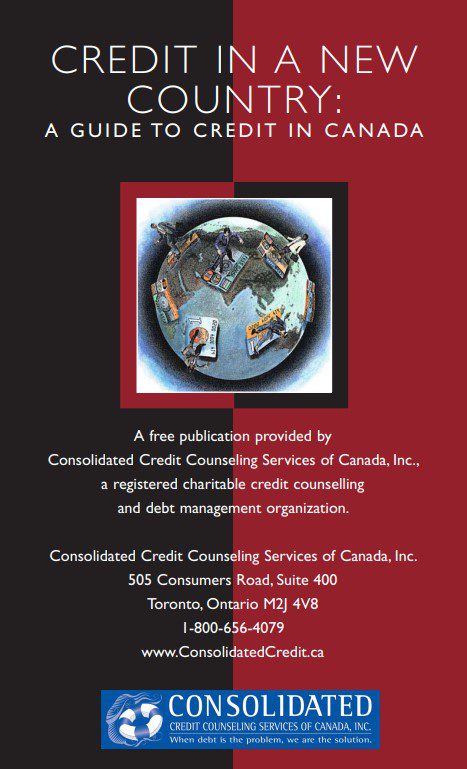Newcomers to Canada have a lot to adapt to. One of the things newcomers must learn and manage is their finances. The Canadian financial system offers a ton of benefits, but it is also complex. Below is general information for newcomers adjusting to life in Canada.
Who is a newcomer to Canada?
A newcomer is anyone who left another country to settle in Canada. In other words, someone who immigrated to Canada. This could be a temporary resident, international student or someone who has Canadian residency. With this in mind, there are ample resources available for newcomers to Canada.
Getting started with Canada’s banking system
Obtaining a bank account is an important step in the financial process for newcomers. A bank account allows you to:
- Set up direct deposit with your employer
- Utilize online banking services, such as ATMs and a debit/credit card
- Lastly, establish chequing, savings and other accounts
To open a Canadian bank account, you must choose an institution. In Canada, there are three types of financial institutions: traditional banks, trust companies and credit unions. All three types of institutions offer banking services but differ slightly in how they do business.
The big five banks are the largest and most competitive in the market. They include:
- Toronto-Dominion Bank (TD)
- Royal Bank of Canada (RBC)
- Bank of Montreal (BMO)
- Canadian Imperial Bank of Commerce (CIBC)
- Bank of Nova Scotia (Scotiabank)
These are often considered the best bank for newcomers to Canada. Generally speaking, credit unions and trust companies are smaller and less competitive. However, they can still meet all your banking needs and are often more intimate.
Upon your arrival to Canada, research banks to determine which one is best united to your needs.
Investments
There are a number of special investment accounts available to Canadians. For example, there are two kinds of investment accounts: registered and non-registered. Let’s explore further below.
Registered
- Registered Education Savings Plan (RESP)
- Tax-Free Savings Account (TFSA)
- Registered Retirement Savings Plan (RRSP)
- Registered Disability Savings Plan (RDSP)
Non-registered
- Guaranteed Investment Certificate (GIC)
- Non-registered savings accounts
How newcomers to Canada can obtain a good credit score
Down the road, you may want to access other financial services. For example, credit cards, mortgages, lines of credit and so on. These products can help you acquire wealth and achieve your life goals.
However, to be eligible for these products, lenders will evaluate your credit score. For this reason, it’s important to start building credit as soon as you arrive in Canada. Unfortunately, newcomers can be at a disadvantage since they are starting to build credit later in life than other Canadians. Below are some tips for newcomers to Canada.
Steady employment
Undoubtedly, having a full time job with little to no gaps in employment helps credit scores. Stable, reliable income is a big consideration for lending too. You may need a work permit or a permanent resident card to get your first job in Canada.
Always pay bills on time and in full
Repayment history has the largest impact on your credit score. If you always pay your bills on time and in full, you will establish strong credit over time. However, if you anticipate you can’t pay a bill on time, communicate with the institution. This can preserve your credit score as opposed to ignoring it.
Use a secured credit card
A good way to boost your credit score is through a secured credit card. They are essentially the same as a credit card, but require a cash deposit upfront. That deposit becomes your credit limit. For instance, if you ever fail to pay your monthly bill, the cash deposit will repay your debt.
Apply for small loans
As mentioned, repayment history has a big impact on your credit score. For this reason, you can apply for a small loan and use your savings to repay it. This will build up your credit history and show you’re responsible with debt.
Follow agreements and conditions
If you obtain a loan or other financial product, be sure to follow the agreement and conditions. This is part of being responsible with debt.
However, if you expect you’ll miss a payment or can’t meet the obligation, communicate with the lender.
Don’t overextend yourself
It can be tempting to take on more and more debt. However, this is how the cycle downwards into debt can start. Try your best to build and maintain credit without taking on more debt than you can realistically manage.
Your credit report
In Canada, there is something called a credit report. Every individual has one. To clarify, it communicates your credit score and financial activity. This includes your personal information, repayment history, open and closed accounts, accounts in collections, and so on.
Benefits and tax credits for newcomers to Canada
Additionally, Canada offers special benefits and credits to certain individuals and groups. Below is a list of the three main benefits and credits newcomers may be eligible for.
- GST/HST credit. A sales tax credit offered to individuals and families with low to modest income. Generally, the credit offsets GST or HST sales tax they pay. When you file your taxes, you are automatically considered for this credit. You do not need to apply.
- Canada child benefit (CCB). This credit is only available to families and individuals with children under the age of 18. It is a tax-free payment from the CRA. CCB may include the child disability benefit and any similar provincial/territorial programs.
- Provincial/territorial programs. Each province and territory offers unique benefits and credits. Thus, you may be eligible, depending on where you live in Canada.
Do you have to file a tax return?
Yes. Every individual in Canada must file a tax return annually. In general, the tax year is always from January to December. Your tax filing and return are due in April. Fortunately, there are more benefits and credits available through the annual taxation system. For example, you may be eligible for a tax return, money back from the government, which is why it’s important to file. You can use our income tax calculator to estimate the federal and provincial taxes you would owe.
Be aware of fraud
With Canada’s comprehensive financial system, there is a disadvantage, the potential for fraud. Unfortunately, people may exploit unsuspecting individuals with the hope of financial gain. Therefore, be wary of fraudulent activity. Do not give out your personal information, unless it’s to a source you trust. Even so, be cautious of sharing information over the internet. In terms of scams, remember that if it’s too good to be true, it probably is.
How to report fraud
If you’ve fallen victim to fraud, you should report it and rectify the situation. Firstly, report it to your bank. They may be able to waive fraudulent charges so you’re not liable. In addition, they will issue you new cards to ensure your financial information stays safe. Secondly, report it to the credit bureaus, Equifax and TransUnion. Fraudulent activity may reflect on your credit report. If this is the case, request to add a personal statement to your credit report to explain the situation to future lenders.
Resources for newcomers to Canada
Check out various resources below for informational purposes only:
- Welcome to Canada
- Use ArriveCAN to enter Canada
- Get to know Canada
- Living in Canada Tool
- Start your life in Canada
- Checklist for newcomers to Canada
- Find free newcomer service near you
- Community Connections
- Immigrating and settling in Canada video collection
Find more information in Consolidated Credit Canada’s “Credit in a New Country” booklet.
Credit in a New Country
Establishing good credit is often frustrating for those who are new to this country and don’t understand how the system works. Establishing credit is a critical component for financial survival. Use this booklet to guide you through the basics of developing credit in this country.
Newcomers and finances
Upon arrival to Canada, finances can be overwhelming to newcomers. However, the sooner you start managing your finances, the faster you’ll learn and adjust. If you need help navigating the Canadian financial system, Consolidated Credit can help. The organization offers tons of resources to help newcomers to Canada.






